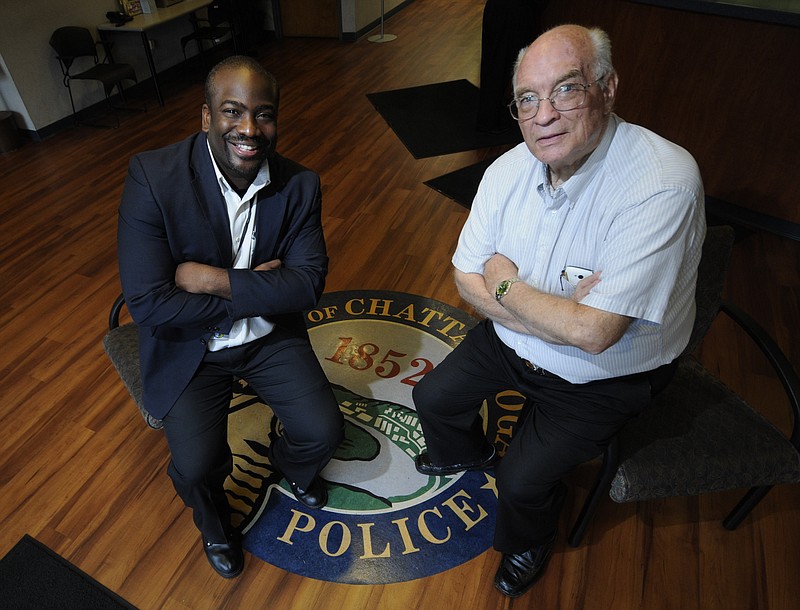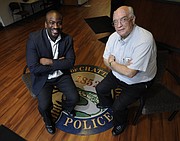We might help get food and water to victims and family members, but we also offer a chance to pray and someone to talk to.
When a man was hit and killed by a city bus driver last week in North Chattanooga, not only were police and emergency medical technicians called to the scene, one of the Chattanooga Police Department's volunteer chaplains was also called to the scene.
"I was called out yesterday to the fatality on Market Street. I ministered to the two bus drivers involved and the person who was [driving] behind them who saw it happen," says Ben Brychta the day after the incident. Brychta is one of nine volunteer chaplains that work with CPD and is also the group's secretary, keeping meeting minutes and handling communications.
Requirements for being a volunteer chaplain
* 21 years of age or older* Good moral character* Must pass a background check* No felony convictions* Valid driver’s license* Current United States citizen
Expectations
* Professional appearance* Good communication skills* Good interpersonal and relationship skills* Ability to maintain a positive attitude* Available to volunteer a minimum of eight hours a month* Wear approved clothing* Follow requests of sworn officers* Complete paperwork on time* Attend monthly meetings
While EMTs are tending to the injured, a chaplain tends to the spiritual and emotional needs of the victims and their families.
"We are responsible for providing a ministry of presence for the officers and for members of the community," says CPD Lead Chaplain Tuwan Ussery.
Another chaplain in the program offered support to the father of one of the victims in the horrific crash on Interstate 75 in Ooltewah that killed six last month, and members of the group have been working with police officers and family members of the servicemen killed on July 16 at two local recruiting centers.
Brychta says he also has spoken to a couple of the firefighters who worked the Ooltewah crash scene. Because the CPD chaplains work closely with the other professionals who work crime and accident scenes, they understand what they are going through.
"You don't go home and simply say, 'That was just another day' and leave it at the office," he says.
Still, not every incident the chaplains are called to involves a loss of life, nor do they draw as much media attention as these three tragedies have, but any incident can be traumatic to the victims, and to the police.
"We know it is a very real thing that can happen any day to anybody," Brychta says.
The chaplains in the interdenominational program are all volunteers who are retired or have regular "day" jobs which allow them to do this work. All are ordained ministers who are active in their churches either as ministers or elders and all have experience in helping people in crisis. The CPD chaplains coordinate with other area agencies such as the Family Justice Center and the Red Cross.
"We might help get food and water to victims and family members, but we also offer a chance to pray and someone to talk to," Ussery says.
On call for a week at a time, the chaplains rotate their schedule but must volunteer a minimum of eight hours per month. Ussery adds that the program is currently going through a recruiting process, searching for more volunteer chaplains.
A CPD chaplain's first responsibility is to the police officers and then to members of the community that might need someone to offer comfort or a listening ear, Brychta says. They are called to crime or accident scenes by officers, typically sergeants, on the scene.
An officer can also request a chaplain to join him or her during a shift as part of the group's ride-along program. Chaplains get to know the officers, hopefully earning their trust. All discussions are confidential.
"Our responsibility is to be there for these officers," Ussery says. "We allow them to express themselves. Things like grief and quilt and things of that nature. We help to give them a sense of direction.
Contact Barry Courter at bcourter@timesfreepress.com or 423-757-6354.

